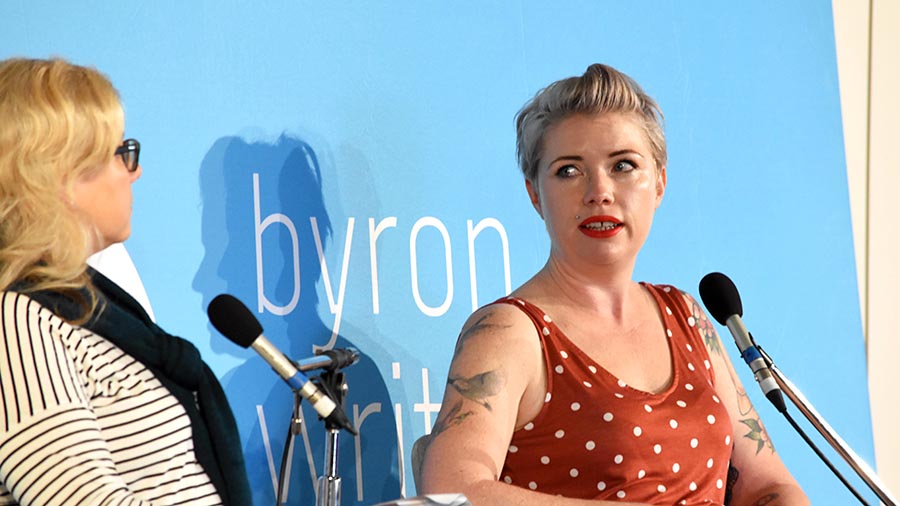Boys Will Be Boys with Clementine Ford

First sessions at a festival do well to start with a bang, and this was no different at the 2019 Byron Writers Festival.
Feminist commentator and Boys Will Be Boys author, Clementine Ford has a reputation for pushing contemporary boundaries and challenging society’s views on equality, feminism and masculinity.
As a prominent activist, Ford uses her personal life and concerns as a lens to write about the real-world issues she tackles in her writing. Being a mother to a young son has been the gateway for her to write Boys Will Be Boys.
But her aim is not to divide but to create an understanding about the importance of people being responsible for their actions.
Ford says that often people, on one hand, say they wouldn’t tolerate poor treatment of women but deny that any men close to them would engage in oppressive behaviour.
They say, ‘Not MY house, not MY son, not ALL men’.
‘[But,] I truly don’t think men understand the problem is theirs to solve,’ Ford tells session chair, the award-winning journalist Rosemarie Milsom.
As Ford sees it, some men don’t receive physical touch and affection, they are limited to it through intimacy with their partner.
This can create an emotional burden as only having one single outlet for one’s feelings can put excessive pressure on a relationship. When things go bad, there is potential for abuse and sometimes violence.
The term ‘toxic masculinity’ gets thrown around in discussions but people often mistake its meaning.
Ford and Milsom deliberate on how people either wilfully or unconsciously misinterpret this term as meaning ‘masculinity is toxic’ and ‘all men are bad’.
But Ford says it actually ‘refers to aspects of masculinity that are weaponised to cause harm to men and women’.
Toxic masculinity demands men perform their maleness in a way that is often damaging to both sexes. According to Beyond Blue, men make up around six out of the eight suicides each day in Australia.
It is because of these misunderstandings and disagreements about the definition of toxic masculinity that Ford faces blowbacks, is sent death threats and ‘graphic things of what men think they should do to me’.
‘You have to do so little as a man to be thought of as exceptional, and you have to do so little as a woman to get a rape threat,’ says Ford.
But it is not this violent feedback that worries her, she says. Instead, it is identifying which issues she can best vocalise and choose to write about in order to start a conversation.
Ford poses a question of what it truly means to be a good person and answers it herself in an unexpected, confronting way.
‘As a community, we need to accept the fact that most of us aren’t good people but that doesn’t make us actively bad,’ says Ford.
Not doing bad things, does not make you good. This pushes our preconceived ideas about ourselves, and is something like a kick to the gut.
But recognising self-growth is not necessarily an easy road. Ford urges people to sit with discomfort and allow themselves to feel the unsettling feels that can lead to a sense of freedom.
‘Goodness is something you strive towards, not that you claim to be,’ says Ford.
Ford has many labels that are used to define her character: ‘polarising’, ‘controversial’, ‘hard-line feminist’. But it is her ability to dismiss these assumptions and persevere with her philosophies that makes her a best-selling author of our time.
Stacey Schwenk is a Southern Cross University Digital Media and Communications student. Southern Cross University student have reported on Byron Writers Festival since 2010. Find out where a degree from Southern Cross University can take you.
